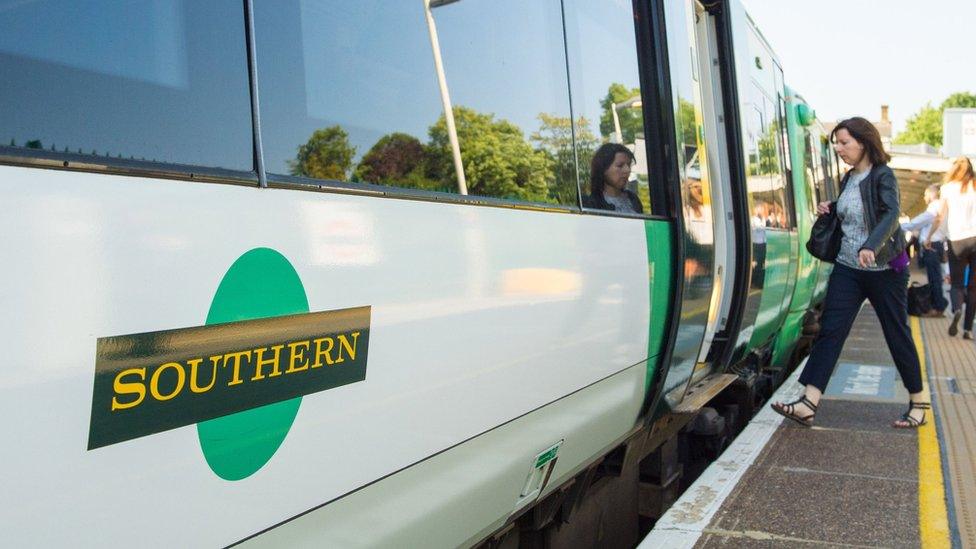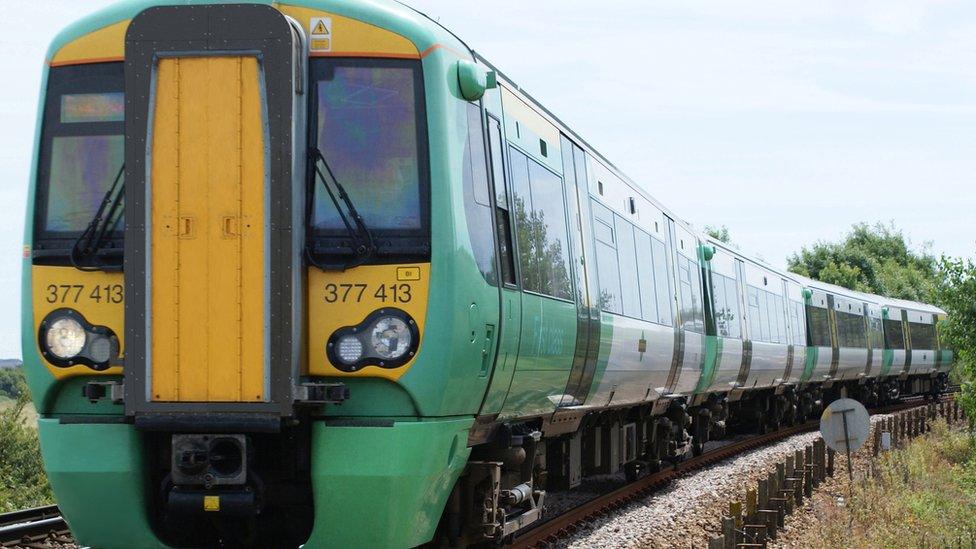Southern: Technological change versus people - again
- Published
- comments

Southern Trains want drivers to control the doors whereas unions say this is dangerous
As the rail strike winds down on Southern trains, one thing struck me about the arguments around this latest dispute over conductors.
The friction between workers and management in many disputes is due to changes caused by the introduction of new technology.
It is the technology which means transport bosses think they can then change roles.
In this dispute, Southern wants the driver (and not the conductor) to have control of the doors. It claims the driver can now do this safely as he has CCTV.
That is a similar argument to the changes implemented on the Tube and the closure of ticket offices.
Then the bosses said role changes were possible due to the rise of the Oyster card and automated payments. There were many strikes, as well as the eventual role changes, and hundreds of posts were also closed. The changes were driven through.
Incidentally, Southern is also trying to close ticket offices using the same arguments.
On the issue of conductors, Southern trains says: "On our more modern trains, we want to evolve the conductor role into one of an on-board supervisor, who is more visible to more passengers, travelling on more parts of the network, delivering high-quality customer service and checking tickets.
"There would be as many trains running with staff on board as they do now - but you will see more of them than you do now because they will have more time and opportunity to offer good quality customer service."
The RMT union claims this is a safety issue and two safety qualified personnel on board are better than one.
The union does not want what's called "Driver Only Operation" spreading and the removal of the safety element from the conductor role.

Paris Metro managed to implement changes without redundancies
You can compare all of this with what has happened in Paris where the unions are strong.
There, transport bosses implemented automation and no drivers on the Metro's Ligne 1, external.
The operators RATP upgraded the line with full negotiation with the unions from as far back as 2003.
The pay-off for the unions was drivers were redeployed onto another line and were promoted. There were no redundancies.
That proves at least that changes driven by technology do not necessarily have to lead to strikes.
But I haven't yet come across that kind of consensual approach in the UK.
- Published27 April 2016
